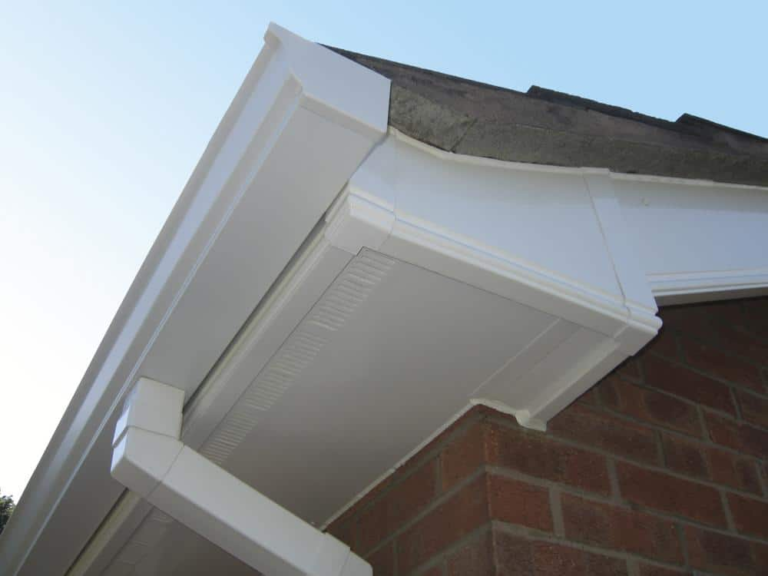15 Lessons Your Boss Wished You'd Known About Soffit And Cladding
페이지 정보

본문

Understanding Fascia and Cladding: Essential Elements of Building Design
The visual appeals and functionality of a building significantly depend on the outside design and the products utilized in building and construction. Amongst the appealing components that add to the visual appeal and protection of a structure are fascia and cladding. This article will explore the meanings, purposes, product options, installation processes, and benefits of fascia and cladding in building construction.
What is Fascia?
Fascia describes the band of product that runs horizontally along the edge of a roof. Its primary purpose is to support the lower edge of the roof and serve as a barrier between the roofline and the outdoor environment, successfully sealing the roof structure to prevent wetness seepage. Furthermore, fascia boards are critical in safeguarding the underlying structures, such as the rafter beams, from weather damage, pests, and decay.
What is Cladding?
Cladding, on the other hand, is the external layer or covering of a structure that acts as a protective and ornamental façade. It is applied over structural walls to offer insulation, increase durability, and enhance visual appeal. Cladding can be made from various products, consisting of wood, metal, PVC, stone, and composite products.
Table 1: Key Differences between Fascia and Cladding
| Criteria | Fascia | Cladding |
|---|---|---|
| Meaning | A horizontal board at the roof's edge | Exterior covering on walls |
| Function | Supports roof edges and prevents moisture | Insulation, security, and aesthetic appeal |
| Products Used | Wood, PVC, aluminum | Wood, metal, vinyl, stone, brick |
| Visual Impact | Minimal vs. cladding | Significant visual impact |
Significance of Fascia and Cladding
Fascia Benefits:
- Weather Protection: Fascia protects roof structures from rain, snow, and other weather elements.
- Visual Appeal: It supplies a smooth transition between the roofing system and the wall, contributing to the general look of the building.
- Obstructed Pests: Fascia boards prevent birds, insects, and other bugs from entering the roofing system area.
Cladding Benefits:
- Thermal Insulation: Cladding products can supply extra insulation, decreasing energy costs.
- Moisture Barrier: Proper cladding serves as a barrier against wetness, safeguarding the underlying structures.
- Durability: Cladding products like metal or stone are resistant to weathering and can last a very long time with very little maintenance.
Kinds Of Fascia Materials
Fascia materials can differ considerably based on performance, appearance, and cost factors to consider. The most common materials consist of:
- Wood: A standard option that uses natural beauty but requires routine maintenance to prevent decaying and deforming.
- PVC: A low-maintenance option that is waterproof and available in different colors.
- Aluminum: Resistant to rust and simple to install, but might be less aesthetically appealing than other materials.
Kinds Of Cladding Materials
Cladding products encompass a broad variety of options, each with its special attributes:
- Wood: Provides a natural and warm aesthetic but needs treatment to resist pests and weather condition.
- Vinyl: Affordable and low-maintenance, offered in panels and various colors.
- Metal (Aluminum, Steel): Provides a contemporary appearance, is resilient, and shows energy performance.
- Brick: Traditional and strong, it provides exceptional insulation and decreases the requirement for frequent maintenance.
- Stone: Provides a high-end visual and extraordinary durability however can be pricey.
Installation of Fascia and Cladding
Installing Fascia
- Preparation: Remove old fascia (if relevant) and clean the location.
- Procedure and Cut: Measure the length of the roofing system edge and cut the fascia product accordingly.
- Attaching: Secure the fascia board to the rafter ends utilizing nails or screws.
- Sealing: Apply caulk around joints to guarantee a leak-proof seal.
Setting up Cladding
- Preparation: Ensure the wall surface is clean and level. Add a moisture barrier if required.
- Framing: Install vertical battens or a structure for the cladding to connect to.
- Procedure and Cut: Measure the cladding panels according to wall height and width.
- Affixing: Fix the cladding panels to the framework using specified fasteners, guaranteeing appropriate positioning.
- Cutting and Finishing: Add trims at the edges and use any essential sealants.
Frequently asked questions About Fascia and Cladding
What is the average life expectancy of fascia materials?
The life-span of fascia varies by material: wood can last approximately 20 years with correct maintenance, while PVC can last over 30 years, and aluminum has a lifespan even longer than that.
Is cladding essential for all buildings?
While cladding is not obligatory, it is extremely beneficial for improving insulation and safeguarding the building from weather condition components. For industrial structures, it is nearly necessary to make sure energy performance and visual appeals.
Can I set up fascia and cladding myself?
DIY installation is possible for those with home improvement experience; however, employing experts is advised for guaranteeing proper installation and adherence to structure codes.
Both fascia and cladding play integral roles in the longevity and visual appeal of a building. Understanding the products, advantages, and installation procedures of each can considerably influence the efficiency and general look of a structure. By picking the best type of fascia and cladding, homeowners and home builders can guarantee that their buildings are not only attractive but also well-protected versus environmental elements. As the demand for energy-efficient and visually pleasing structures continues to grow, embracing these vital aspects of style will remain vital.

- 이전글IELTS Exam Certificate Tips To Relax Your Everyday Lifethe Only IELTS Exam Certificate Trick That Everybody Should Know 25.06.28
- 다음글Exploring Online Betting and the Essential Role of the Onca888 Scam Verification Community 25.06.28
댓글목록
등록된 댓글이 없습니다.

